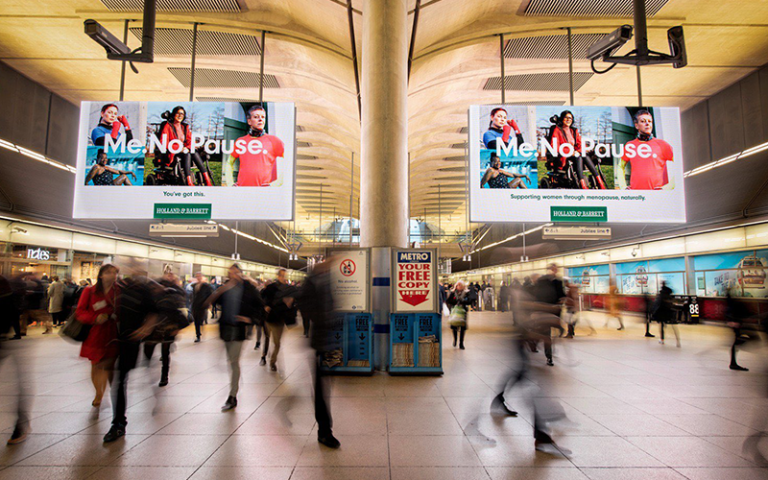Creating equitable, inclusive and positive representations of girls and women in the UK
An innovative programme at IOE, UCL’s Faculty of Education & Society, exposing gender and race inequalities in media advertising, has led to the UK advertising industry including more diverse imagery.

20 April 2022
Professor Jessica Ringrose’s (IOE, UCL’s Faculty of Education & Society) research explores how media and technology can be harnessed for positive change, documenting how women and girls fight back online against sexism and create new messages of change that can spread via social media.
In 2018, in response to public outrage at sexist imagery in public advertising, Transport for London (TfL) commissioned Professor Ringrose to explore diverse women and girls’ experiences of advertising in London.
To capture women and girls’ experiences of advertising in public spaces, Professor Ringrose used participatory methods, including recording and photographing interviews with participants during their daily commute.
The research also used arts-based methods, such as collaging to challenge stereotypes and create new campaign ideas with diverse groups of girls.
It triggered changes in advertising policy and stimulated millions of conversations about body image.
Promoting body positivity
Adopting an intersectional approach to understand interlocking inequalities, the Women We See (WWS) report found that not only was advertising felt to be sexist, it failed to include and represent racial, religious, cultural, sexual, class and body diversities.
More than half of women from BAME backgrounds felt they were not well represented in advertising, older women felt almost invisible, and women of all ages were concerned about the use of photoshopping; feeling female bodies were sexualised and used to sell unrelated products.
The findings influenced youth policy initiatives on body image and informed Relationship and Sex Education (RSE) lesson plans and resources delivered to 31,000 school children in the UK, including sessions on body image and body positivity, digital feminist activism, and positive uses of social media. The UK advertising sector, including the National Advertising Standards Authority, has responded with changes to policies, guidelines and advertising campaigns.
Inspiring inclusive campaigns
The WWS report led to a competition launched by TfL and the Greater London Authority in response to the findings, calling on creative agencies and brands to respond to the researchers’ recommendations to challenge gender stereotypes, increase diversity and create more positive and inclusive campaigns.
Several award-winning advertising campaigns resulted, including Holland and Barrett’s Me.No.Pause that breaks the taboo of aging women in advertisements and highlights women’s experiences of menopause.
Another, developed for Mothercare – Body Proud Mums – profiled women’s bodies postpartum.
The winning entries have together created £1m of advertising space and increased market share for the companies, reinforcing the impact of inclusive marketing. The WWS research was amplified in social media, with 1.5 million impressions recorded, which in turn generated a national conversation about the representation of women and girls in public media.
In recognition of Professor Ringrose’s research, advocacy and public engagement, she was awarded the 2020 Distinguished Contributions to Gender Equity in Education Research Award, from the American Educational Research Association.
Reseach synopsis
Diversity Matters: Creating equitable, inclusive and positive representations of girls and women in the UK
An innovative research and engagement programme at IOE, UCL’s Faculty of Education & Society, that exposes gender and race inequalities in media advertising has prompted the UK advertising industry to include more diverse imagery. It has also triggered changes in advertising policy and stimulated millions of conversations about body image.
Links
- Professor Jessica Ringrose’s academic profile
- IOE, UCL's Faculty of Education and Society
- IOE REF 2021
Image
- Caption: Holland & Barrett’s winning creative from 2018’s ‘Women We See’ competition. Credit: Pablo via Heidi Alexander, Deputy Mayor of London for Transport (Twitter)
 Close
Close

